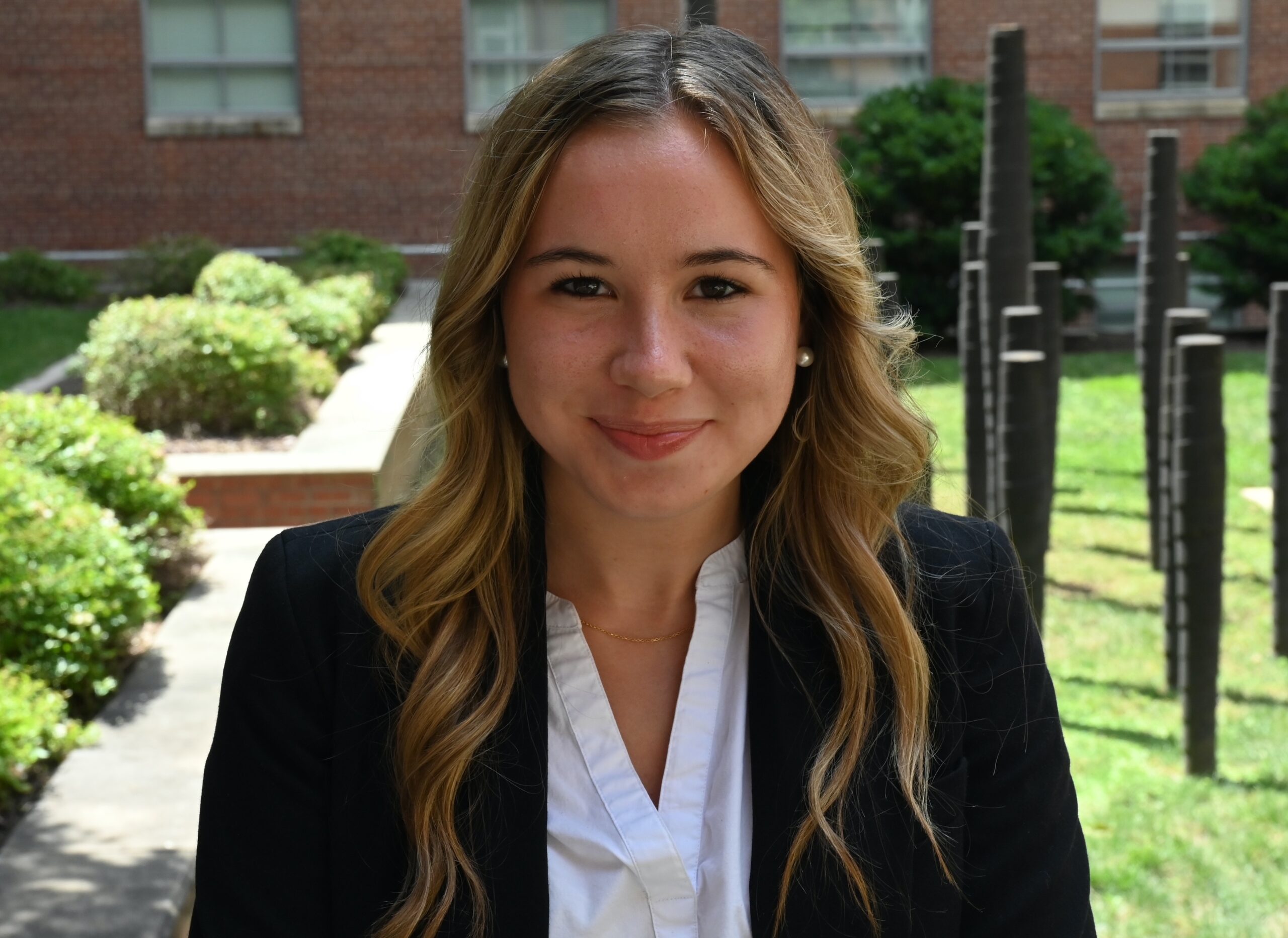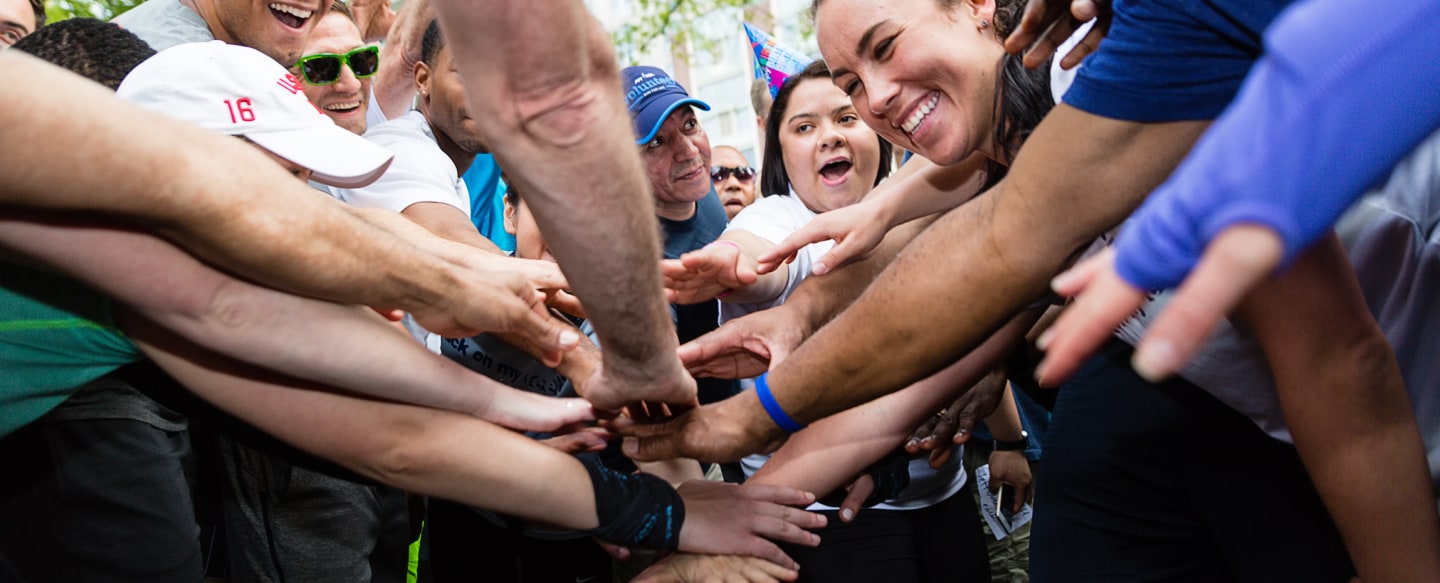As a child growing up in Raleigh, North Carolina Elizabeth “Ellie” Borowiak wanted to be a doctor. Even in elementary school, she routinely talked to her parents about that ambition. Then as a high school sophomore, she took a government class that touched on constitutional law. After school that day, she asked her parents if they would be comfortable with her pursuing law school instead. They told Borowiak they just wanted her to find a career she felt passionate about. Flash forward six years and Borowiak is a senior at Notre Dame, studying political science, French, and constitutional studies, and looking forward to attending law school next year. During her time at Notre Dame, Borowiak has been active with the Center for Citizenship and Constitutional Government (CCCG). We sat down with her to discuss the CCCG’s Tocqueville Fellowship and how programs like it foster open debate, mutual respect, and the free and civil exchange of ideas on campus.
CKF: How did you hear about the CCCG and what opportunities have you had as a Tocqueville Fellow?
Borowiak: I heard about CCCG before I committed to Notre Dame. The university does a great job of recruiting admitted students. A whole bunch of people reach out, either through handwritten letters or texts, to tell you more about student life. I received a text from a student telling me about her campus involvement and her constitutional studies minor. She told me about the CCCG, so my freshman year I met with an adviser from the center.
The Tocqueville Fellowship is an extension of the CCCG. You don’t have to be a constitutional studies minor to be a fellow. We have fellows who are finance majors, classics majors, and many others. We meet as a group every week either for a meal and discussion or a private meeting with a speaker. Supreme Court Justice Amy Coney Barrett was a recent speaker. We have about five speakers each semester. We also have one or two colloquia per semester, which are two days each. We usually tackle a book or some longer piece of writing over several sessions and meals. Earlier this fall, we wrestled with Ezra Klein and Derek Thompson’s new book Abundance.
Beyond formal programming, a hallmark of the program is just getting together with other students. It’s been so wonderful to share meals and social time with a group of 20 to 25 individuals who are in different class years, are studying different areas, and have different political opinions, but we get to find common ground and grow as a unit.
CKF: What evolutions, if any, have you observed during your time in the fellowship — whether it’s related to the other fellows, the type of guest the CCCG brings to campus, etc.?
Borowiak: Since my freshman year, I’ve observed a really sincere effort to have speakers and students of differing backgrounds and opinions, which has been amazing since I truly believe we can only strengthen our beliefs if we hear from people who challenge our own views. I’ve enjoyed getting to understand a multitude of different perspectives and, particularly in today’s polarizing environment, it’s uplifting to find fellowship with one another even if we have different opinions.
CKF: You mentor younger fellows now. How do you help these students?
Borowiak: I meet one-on-one with the fellows and provide informal advice about where they can go to find certain resources, what classes to take, information about professors, how to network, or even how to think about life after Notre Dame. Others have questions about study abroad or how to best study for the LSAT. I really hope to stay in touch with a lot of these fellows after I graduate.
CKF: What are the core principles undergirding the Tocqueville Fellowship?
Borowiak: We have such an amazing cohort of students interested in education and civic engagement that goes beyond the classroom. This is a group of students who want to wake up at 6 a.m. on a Friday to meet a Supreme Court justice, which we did two weeks in a row. But, for me, two principles really come through: respect for each other and a commitment to listening. We all understand that if someone pushes back on something you said, it helps you grow. It’s never a personal attack. It’s good when people can go back and forth. We’re very good at pushing each other in a respectful way. We know we can’t learn from one another if we don’t listen and respect each other.
In listening, we also start to understand nuances. All the fellows are politically educated. They don’t fall into an echo chamber on either side of a debate. They understand that issues and ideas are complex.
CKF: How have you carried these principles and ideas into your own studies and coursework at Notre Dame?
Borowiak: Being a political science major, I spend most of my courses talking about politics or other contentious issues. I feel like if I didn’t have these principles already strengthened through the fellowship, my courses could be pretty heavy. I know that if somebody comes up with an idea maybe I don’t necessarily agree with, I need to understand that there’s a lot of value in listening to them.
CKF: CKF’s mission is to empower individuals to live lives of meaning. Do you think the CCCG advances that goal? If so, how?
Borowiak: All the fellows are very much committed to living lives of meaning. Like I said before, you have this group of dedicated students who show up any day of the week, at any time, to take advantage of these opportunities that are being presented to them. They don’t believe that education is limited to the classroom, and they want to take the skills they’ve learned at Notre Dame everywhere with them and beyond. These principles of listening and respect are not limited to the fellowship or to the CCCG at large. We bring them with us to other classes, conversations with family and friends, or any other venture we encounter, from going to law school to future jobs — just everywhere.
CKF: When it comes to sustaining a functioning society, why are programs like these so important?
Borowiak: I feel like programs like these are so important because they give students the time and place to have such important conversations and to really grow together as a unit through mutual respect, listening, and discussion. It seems to me that many students actually have an itch to enrich themselves in civic engagement. We’re so blessed to just have an outlet for that at Notre Dame through the CCCG.










